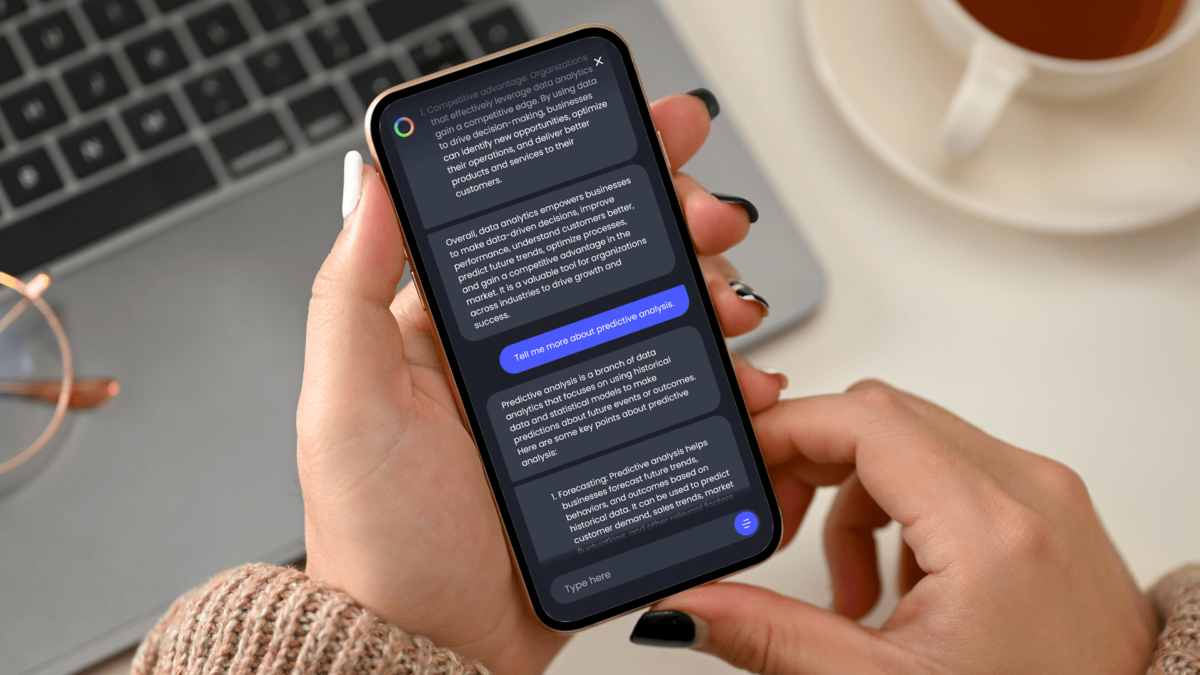It’s time to shift the AI conversation from student cheating to training educators

Generative AI won’t replace teachers, but they need to learn how to leverage it to thrive. The impact of AI and ChatGPT in education is a hot topic, but we need to find a middle ground between fear and hype. AI should be seen as a tool that enhances, not replace, educators in the learning process.
There have been so many articles and blog posts written in 2023 about the impact of AI and ChatGPT in education that writing one more feels almost frivolous… but somewhere between the fear-mongering around AI taking over and the overly-optimistic predictions that AI will fundamentally transform education, we’re missing the middle ground. There are many opportunities to leverage these innovative tools to benefit both educators and students. The question I’ve gotten over and over again on Instructure’s webinars and panel discussions is simple: how do we help teachers navigate the fear and hype around AI in a way that can deliver real results?
What is Generative AI?
With so many terms being thrown around as part of this discussion, it might be helpful to start with some basic definitions. OpenAI is an artificial intelligence research laboratory founded as a non-profit in 2015, while ChatGPT is a generative artificial intelligence developed by OpenAI and released in November 2022.
Generative AI is a type of artificial intelligence technology that can produce various types of content including text, imagery, and audio. Large language models (LLMs) are one type of generative AI used to generate novel combinations of text in the form of natural-sounding language. Though the technology was first introduced in the 1960s in chatbots, only recently has the simplicity of new user interfaces (ChatGPT being the most widely discussed) for creating high-quality text, graphics, and videos in a matter of seconds, opened the tools to everyday users.
But what’s also important to recognise is that while ChatGPT is the best-known generative AI tool right now, it is far from the only one. OpenAI is an open-source tool that offers a set of AI services, such as the GPT-3 language model, to developers and companies through its OpenAI GPT-3 Playground and OpenAI API. This means there is a rapidly expanding universe of websites and tools leveraging the same artificial intelligence engine to create content. And the first half of 2023 has already seen big players like Microsoft launch their AI search engine, Bing Chat AI, and Google launch their own AI, Google Bard.
Identifying AI-generated content
Compounding the issue are concerns around the reliability of academic integrity software to accurately identify AI-generated content. We’ve already seen headlines around students who claim they’ve been wrongfully accused of cheating, and because there’s no source context to point to as in the case of plagiarism, it’s difficult to refute or support these cases. And with the incredible pace of AI evolution that we’ve seen in just the last few months, the anti-cheating arms race is just heating up.
In short, Pandora’s box has been opened and it’s time to stop pretending we can prevent students from using these tools in an academic setting and focus our efforts on helping train educators to leverage AI tools to the benefit of themselves and their students. While it’s important that schools at every level establish guidelines, ethical boundaries, rules, policies, etc., moving quickly to invest in more teacher training is imperative. According to Instructure’s survey on the state of higher education, in the UK the quality of faculty (88%) and engaging content (86%) are the most impactful factors driving student success.
By focusing on professional development for educators in the use of generative AI tools, we can save educators time by allowing the AI to perform mundane and time-consuming tasks, and to support students with tools that support their learning efforts.
Generative AI tools have the potential to change education in several ways:
Personalised learning: Generative AI tools can help scale the efforts of an educator in large classes by providing students with interactive, personalised learning experiences that can help them understand and retain information better, based on what the AI has learned about them.
Intelligent Tutoring: Generative AI tools can act as an intelligent tutor, providing students with feedback and support as they work through problems and concepts, again scaling the efforts of an educator and supporting students directly in the moment of need.
Content Generation: Generative AI tools can be used by educators to tackle some of the more time-consuming aspects of content generation such as lesson plans and multiple choice quiz answers, saving the educator time and delivering more engaging and interactive content for students.
Ensuring Ethical Implementation
Of course, all of the existing ethical considerations around privacy, security, and accessibility need to be addressed, as well as considerations around student and educator intellectual property. Developing AI tools that are properly firewalled by using the API or LTI apps to leverage these tools should support this, but dropping information into the public AI on vendor websites can open up concerns. And this is another area where educator professional development in the very near term is imperative. The more faculty are trained on the capabilities and potential risks of these tools the more likely they are to leverage them in creative and compelling ways while avoiding potential pitfalls.
AI is evolving rapidly and it’s hard to say definitively what the future holds, but I firmly believe that educators are at the heart of learning and AI tools will serve to scale and personalise the learning experience for students, not replace the human. It’s important to remember that as amazing as some of the results we’re seeing from AI are, it takes a human to write the prompts and train the AI to get those results. Generative AI should be viewed as tools, much like the calculator or the internet, that expand and support our learning experience, not replace the educator.
By Ryan Lufkin, VP of Global Strategy at Instructure
FE News on the go…
Welcome to FE News on the go, the podcast that delivers exclusive articles from the world of further education straight to your ears.
We are experimenting with Artificial Intelligence to make our exclusive articles even more accessible while also automating the process for our team of project managers.
In each episode, our thought leaders and sector influencers will delve into the most pressing issues facing the FE sector, offering their insights and analysis on the latest news, trends, and developments.











Responses